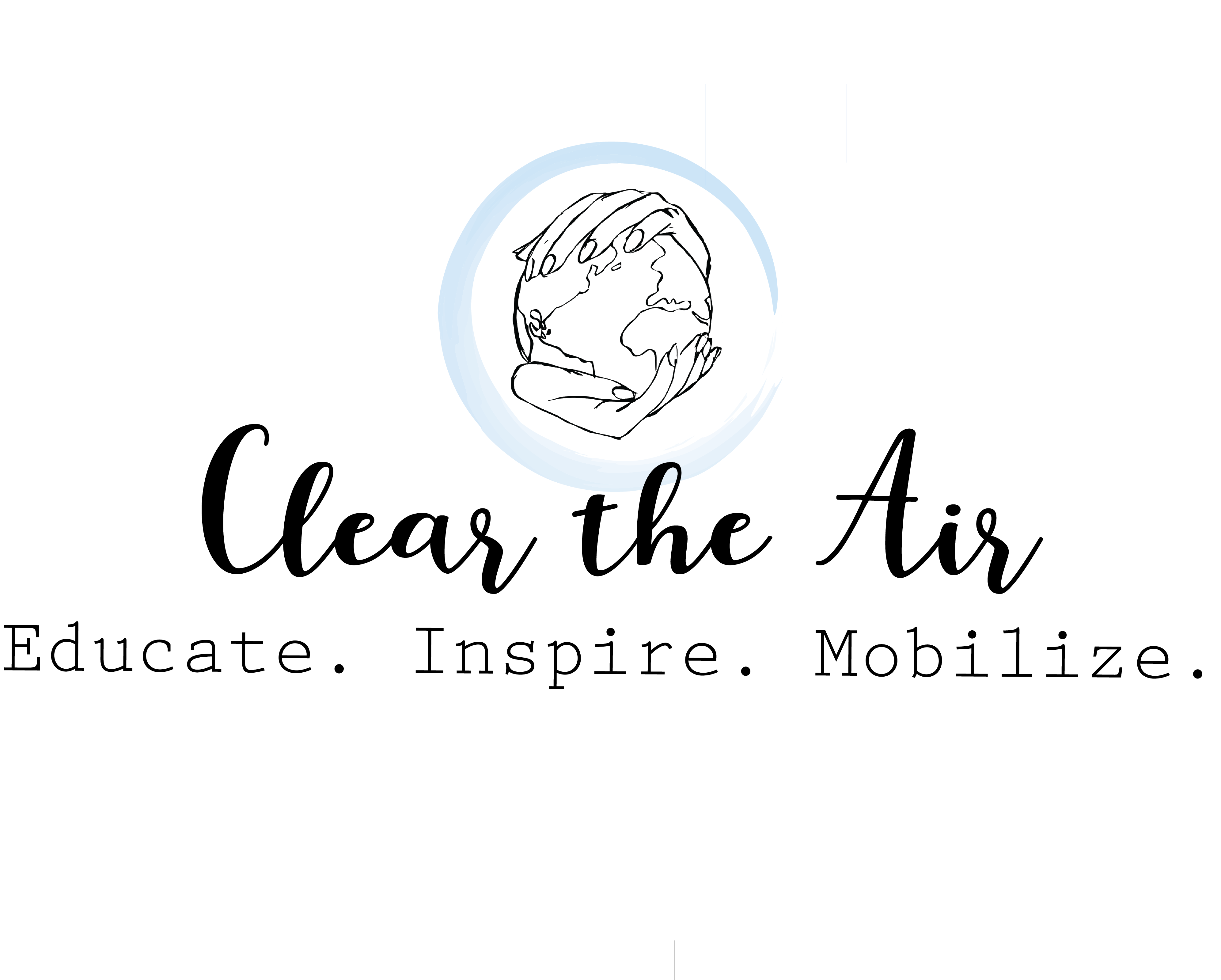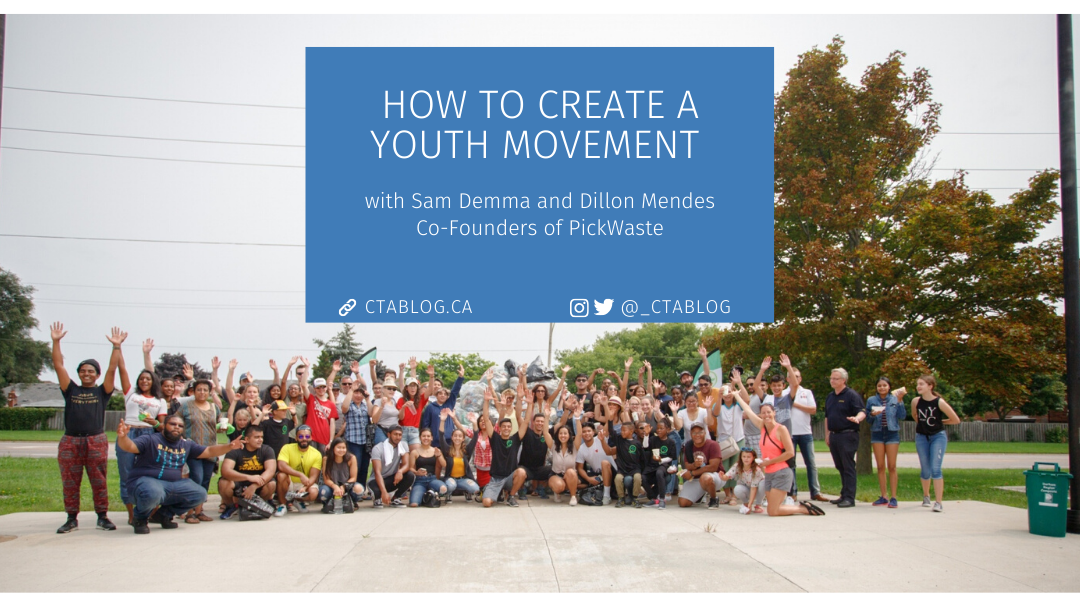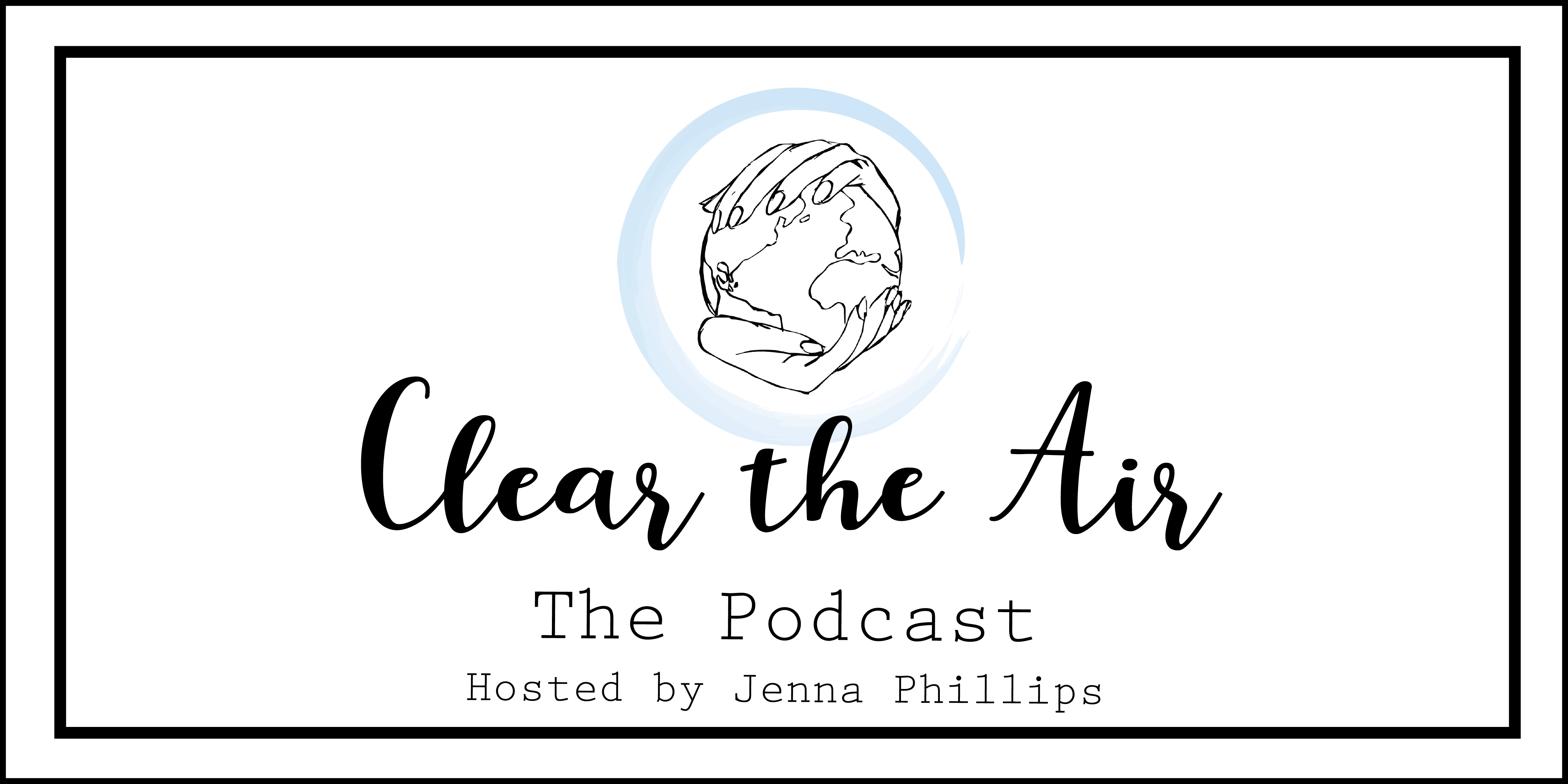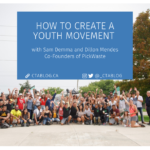Happy Thursday, everyone! Today we are going to discuss how to create a youth movement with PickWaste, an organization that DEFINES the youth sustainability movement.
This past week, I interviewed two young and bright entrepreneurs. If you live in the Durham Region, you’ve probably heard about them through social media or in the newspaper. On Monday I met up with Sam Demma and Dillon Mendes, the faces behind PickWaste, a community-based initiative whose mission is to educate, inspire and motivate the public while making our neighbourhoods a healthier place to live.
Having started the initiative a little less than one year ago, these two have committed to carrying out a cleanup every weekend all across Pickering. As their number of volunteers has grown, they now visit schools to give amazing presentations about their journey and how each and every one of us can make an impact in the world if we are passionate about something.
While sitting in a coffee shop to do our interview, I had the pleasure of seeing their passion firsthand. Their eyes lit up as they spoke, and their words were filled with absolute eagerness. They strongly believe that what they’re doing is making a change, and it is. If you ever get the opportunity to hear them present, you too will be inspired to take action for something that you care about.
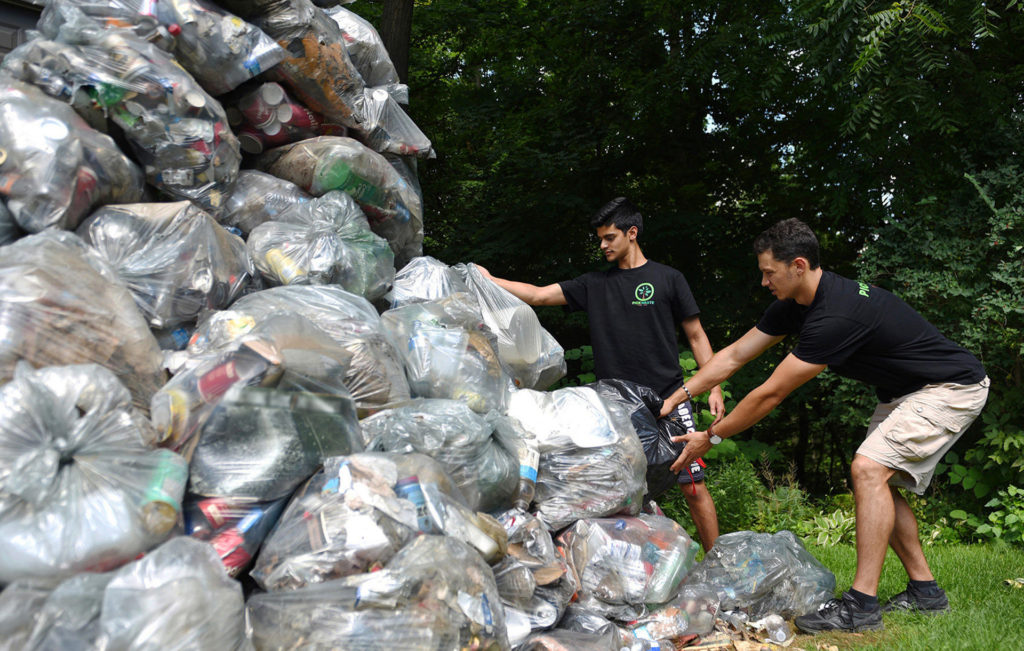
Tell us a bit about yourselves. How did you first start getting involved in environmental initiatives or activities in the area?
Dillon: I just finished up my first year at the University of Waterloo. I’m studying Accounting and Financing Management. I’m also doing a minor in Environmental Studies, which ties into the PickWaste story a little bit later; I think Sam will touch upon that.
I’ve always had a passion for the environment, but I never actually acted upon it. In elementary school I was a part of the eco team, and in high school I was also a part of the environmental initiative, but I never took on any leadership roles. One of the big initiatives that we did was that we went to Ottawa to hand-deliver those climate change cards by Justin Trudeau, so that was pretty cool. Other than that, it wasn’t really a big factor in my life. I knew that there was a problem but I didn’t really act on it until grade 12.
I’m also very passionate about business, but not as much as I thought I was. When I got my acceptance letter to Waterloo for AFM I was kind of like, “oh, that’s cool” and brushed it off. I’ve realized that it’s not really my passion; it’s something that I understand and can easily grasp, but it’s not something I want to do for the rest of my life. I want to tie in what I’m studying to environmental initiatives such as PickWaste and go into environmental consulting, bridging the gap between the two.
Sam: I’m Sam, I’m eighteen and my entire life I was trying to become a professional soccer player. I was trying to chase this dream of getting a scholarship until in grade 12 I had two knee surgeries and I tore my meniscus three times, two on my left knee and once on my right. It took me out of the sport, and at the same time I had a very inspiring teacher, and that’s how I got into the environment. Previously in my life, I wasn’t really involved at all in the environment. Until I had this one class and this teacher, it was kind of like my tipping point in life. Next year I’ll be going to the University of Toronto for Environmental Studies.
how did you two meet?
Dillon: Sam and I used to play soccer together. We played for the Pickering Soccer Club for like five or six years and we went to the same high school. We weren’t really close in grade 9 or 10, but near grade 11 or 12 we found the same truth in different things. We found similar interests regarding solving problems and finding truth and peace in life. We were brought together by our similar interests.
What inspired you to create PickWaste? Was there some defining moment, and how did you identify the need for PickWaste in Pickering?
Sam: I’ll give you the story in general: When I was in grade 12 at the time I had this teacher-I was pretty much inspired by this teacher. It was a world issues class and he basically proved to me and everyone else in the class that we could make a massive impact on the world if we committed to small, consistent actions. The way he did it was by breaking down figures in history like Malcom Max and Martin Luther King, all of these amazing people, and proving to us that their missions and impact were the result of small, consistent actions. He was like, “if you commit to a small, consistent action you can make a massive change.”
At the time, I’d just had my second surgery and couldn’t play soccer, and I felt almost like I was in a depression or low state. I needed to fill my time with something else. He gave me this burning desire to try and make a change within my community. I was walking home from school for about two months and decided, you know, there’s garbage everywhere, so why not just pick it up? So for about two months my small, consistent action was to pick up trash while walking home. I didn’t know where it was going to lead, but I had this theory that if I kept doing it, it would lead to something big. Five days before summer break, Dillon saw me.
Dillon: I drove by him and was like, “what the hell are you doing (we all laugh), why are you picking up garbage?” It was weird because we spent so much time together before that, we partied and played soccer together, and now I see him picking up litter. I was confused why all of a sudden he was picking up this garbage.
Sam: I told Dillon and explained to him what my teacher said to me: “Imagine a world where every single person picked up just one piece of garbage, or just followed their own dreams and passions with small, consistent actions.” We’d be living on a much better planet, we’d be more happy and healthy.
Dillon: That statement made a lot of sense. I went home and gave him a call and said, “let’s do something with this, let’s turn this idea into an action. Let’s host weekly cleanups.” And that was July 1st, 2017, and that’s how PickWaste was born.
Why do you think it's important for people know about and get involved with your initiative?
Dillon: Picking up litter is a great way to spread awareness. We not only pick up litter, we also speak at schools to spread awareness about the initiative. If we were only picking up litter we’d be doing it for the rest of our lives. Our main goal is to reduce the things that we are picking up. If people can still throw out a plastic water bottle or a coffee cup…that’s not good.
Jenna: For sure. It’s one thing to go out there and pick up after people. If you don’t start educating them on the importance of not littering in the first place then you’re just going to keep going in a circle, and that’s not helpful for anyone.
Dillon: Yeah, it’s like the social proof. In the book The Tipping Point by Malcom Gladwell, it says that people assume the actions of others in an attempt to refocus abstract behaviours. By witnessing someone picking up litter, I’ll either be more inclined to pick up litter or just not be inclined to litter in general.
Sam: And if you see thirty people doing it, then you’re like, “this must be correct.”
Dillon: Yeah, and so we’re here to spread awareness. To tie environmental consulting with it, the main goal is to reduce litter. Say if we go to Starbucks and say “listen, we filled up five bags of litter” they would say “yeah that’s great, good job. But, you know, there’s the door.” But if we go there and say “we have consulting experience. Here’s ten thousand bags of garbage.” We can talk to them about how we can keep their costs low by switching their products to more sustainable ones. At the end of the day, what we always talk about is that we can blame businesses, but businesses thrive off of the consumers. If the consumers are still buying these products, we can’t really blame the businesses. It’s just business.
Jenna: Exactly. They’re just supplying for the demand.
Dillon: Yeah. So what we need is to figure out how can we help businesses reduce their waste but keep their costs the same.

What has been your inspiration to move forward with your campaign?
Sam: We’ve had a lot of really cool experiences while cleaning up and during speeches. During our first cleanup at Liverpool Beach, an old man approached us and started tearing up and crying. He was like, “what are you doing?!” so we explained to him that we were picking up litter. He was like, “I’ve lived here for twenty years and in the past twenty years I’ve walked this beach every day and I have never seen anyone your age picking up litter. I’ve only ever seen kids your age throwing it on the ground.”
For us, that was like wow, youth have this bad connotation that they’re just throwing garbage everywhere. And then there was that second thing where we thought, wow, what we’re doing is worthy and people actually recognize and acknowledge it as a good thing. Little things like that have kept inspiring us.
But it all ties back to this main idea: the environment and humanity are tied together. It’s a misconception people have that they’re separate. If you’re passionate about the environment then people call you a hippie. The reality is, it’s one in the same.
The way we explain it is that, if you think about the three resources we need to survive, it’s food, water and oxygen. They all come from the environment. The water we choose to pollute may one day become the water that we’re going to have to filter and drink; the fish living in the ocean, we’ll one day eat them. We’re just eating our own pollution. And so, we’re passionate about humanity in general, and that’s why we’re so passionate about the environment. It’s really the same thing.
It’s great to have those little ones with the encounters, but that’s not the main thing that keeps up going. When we started we only had four guys coming to the cleanups for three months. If we weren’t passionate about it we would’ve just stopped.
You guys just attended Enactus. Would you mind sharing what that experience was like?
Dillon: So how we found out about Enactus was pretty cool. I go to Waterloo, and their Enactus team just started this year. They were looking for an initiative last minute. My friend was on the team and told us to pitch PickWaste to them. They took PickWaste on, and most schools get six to seven months to prepare for their presentation while we only got two weeks (laughs). We had no idea what was going on, the whole day was a mess in a way. Essentially, since we do presentations at schools-we had a school board presentation the day before-we put all of our energy into that. We didn’t know much about Enactus and were shocked, it’s actually a lot bigger than we thought it was!
The night before our presentation we got the Powerpoint together, made our speech-we were so focused on our presentation the day before-and we put it all together. Since we spoke at schools we had some background in presenting, but I had heard that Enactus presentations were polished.
I watched YouTube videos of presentations and they were solid, so we were just like “okay, we’ll see how this goes!” It went well even though the day leading up to it was a mess. We stayed up until two a.m. doing all of the work, went to sleep, Sam showed up at my door at six a.m. the morning of Enactus and we ate breakfast on the train. We met some cool people, shared some cool stories, one of us got avocado on our shirt…
Sam: We missed our tech check!
Dillon: Yeah, we missed our tech check. Most teams were teams of twenty, some had fifty or even one-hundred people; we were a team of two, and our tech guy. So, yeah, we missed our tech check. You go into your room earlier to check your projector, your laptop to make sure everything’s working so the presentation isn’t rushed and appears very professional.
So our tech guy didn’t show up and he had our projector. We were like “um, okay, cool.” We had three minutes to present, and it’s very exact. If you go a minute over they cut you off. It’s very professional, and we were kind of freaking out right before we had to present.
We didn’t know if our tech was going to work, and it just looked really bad, like the visual took up half the screen (we chuckle) and it was just not appealing. We also didn’t have a clicker, so we used a mouse, and the tech guy didn’t know when to click for us, so Sam had to click the mouse in his hand. If he had moved the cursor while we were presenting we would have been done!
With that going on, once we started presenting it was fine. We’ve presented at about eighteen schools, but this was our best presentation. Not because we were prepared, but because we just focused right before and said, “listen, we’ve come this far, we’ve done all of this work the past day, let’s just give it our all.” That was a key thing that differentiated us from the other groups, that we spoke with passion.
How Enactus works: you have ‘chapters.’ Universities have their own chapters, and that chapter takes on different initiatives. Most chapters have four or five different initiatives that they take on: environmental, economic, social.
We were just the one initiative. Most other teams present with their Enactus executive team, not the members who created the initiative. When the judges heard us speak, they were taken aback a little bit because we spoke with a lot of passion. We lacked the numbers, the needs analysis and needs assessment, but we can always plug that in after. We ended up getting the award for the most passionate presentation, which was pretty cool.
would you ever go back and compete again?
Sam: One-hundred percent. We’re going to go back next year and kill it!
Dillon: Yeah! And it’s funny because we shared that story with other teams during our presentation because no one knew us. They heard University of Waterloo, and Waterloo has a good name to it, but the teams that kill Enactus are, like, Ryerson, UofT or UOIT, because they’ve been doing it for so long. And they heard University of Waterloo and they see these two guys walk up (we all chuckle), and teams of like twenty are going before and after us, and the people that we presented to were clapping really loudly for us. They thought, “wow, they have the funniest story of the whole day, and now they’re receiving an award.” It’s a small award, but it’s still something.
Sam: We’re going to go back next year with another project, but can’t really say what it is yet!
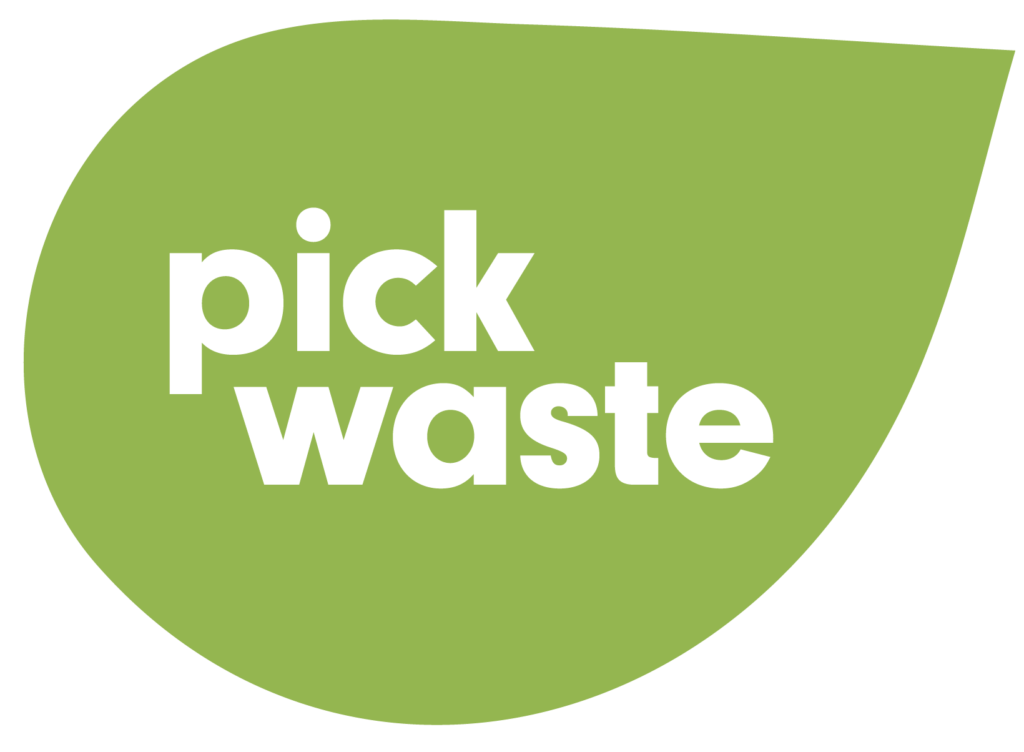
you two have started giving presentations at schools, as you've mentioned. How did you start doing this, if you want to describe the steps, and do you feel that the kids are really engaged with what you have to say?
Sam: We started our initiative on July 1, 2017 and I think we gave our first presentation around Thanksgiving, I think it was October, at St. Mary’s. First speech. Five minutes. We had five minutes to present, which was a quick thing to motivate the kids, but we ended up getting around sixty to seventy kids signing up. No speaking experience. We just decided that we had an important message that needed to be shared, wrote up a document, practised it a few times in the shower-literally, in the shower-and then went up there and presented. The first time we went up there was okay, like it wasn’t anything special and anyone could have done it, but then after that we just progressively got better.
The second and third speech I did alone because Dillon was at school, and that was at Dunbarton and Pine Ridge. I choked at both at them, which is funny: midspeech I had lost my thought and just stopped for a minute and was like, “guys, I’m sorry. I’m seventeen years old, this is one of my first times speaking, bear with me.”
They had no problem with it because they were all engaged. I had no problem with this either because I am a big believer in putting yourself in uncomfortable situations in order to grow. That had to happen, and now we go up there and speak and it’s like clockwork. Now that we’re in it together, if someone ever forgets a section then the other person will just pop into their section to make sure we don’t miss the info. But yeah, if you’re passionate about something you’ll go over your barriers just to get your message out there. We weren’t worried about what people thought, we knew we had something that was important and needed to be shared, so we went out and shared it.
Dillon: Just adding on to that, how we actually got in contact with the schools: the public schools were just by word of mouth. We actually got the chance to present at the Durham Catholic School Board in front of all of the principals. We realized that we were working harder, but not smarter; we were emailing all of the principals from the schools individually, and we weren’t getting any responses. We reached out to the Director of Education and she loved our idea. So instead of giving all these presentations we only gave one at their board meeting. They loved it because, again, we spoke with passion.
From then on, the principals reached out to us-it was kind of, like, reversed. It’s harder on an email, putting a face to words; it’s different. When they actually hear you and see you present, the shoe is on the other foot. A lot of them reached out to us and we actually presented for almost all of them, with just one or two more to go.
We’re trying to replicate this same process with the Toronto School Board and Waterloo School Board as well. Wherever we’re locating-we’re trying to grow the initiative, as well-wherever we’re locating, we want to speak out at their schools to get more volunteers.
PickWaste has been around for almost a year now. Did you guys ever imagine that it would grow so big, so quickly?
Dillon: So it started out with four guys. Originally it was just going to be Sam and myself going out on Saturday mornings to pick up garbage. Long story short, we were at a bonfire, two of our friends were there, we asked them, like, “yo you want to come?” and they were like “okay, sure.”
It was four guys, we had no idea what we were doing at first. We found four pairs of gloves at our house, two garbage bags. Someone told us that day that you can go to the city and ask for gloves and bags and we were like, “oh, cool!” We didn’t even know that. We did not know what we were doing. We weren’t let down by the low number of volunteers we were getting; it was just us for a couple of months and we were like, “okay cool!” Then it started growing. We didn’t know how far it would go, but it’s amazing how far we’ve come. We’re not near the goal that we want to get to.
Jenna: What is your goal?
Sam: We want to average like thirty to forty people at least every weekend in a bunch of different cities. In Pickering, we’re getting fifteen to twenty-five people, and in Scarborough we’re up to six or seven now, and that started two weeks ago. Hopefully in three to four weeks, that number will be at twelve to fifteen. We want to get, like, thirty to forty in each city. In the next five years, we want to fill thirty thousand bags of litter, and in the next two to three years we want to be known all over Ontario, and in the next five years all over Canada.
We started by picking up a coffee cup on the way home from school. If someone said, “Sam, go pick up five hundred bags of litter,” I would be like, “you’re crazy!” So, yeah, we have big goals, but small, consistent actions help you reach them.
What are your future plans for PickWaste in other cities, like in Toronto or Waterloo? How are you going to go about doing that?
Dillon: Essentially just replicating the steps we used in Pickering. Not going to lie, we didn’t do anything super out of the way or abstract, we just committed to small, consistent actions-and that’s kind of the model that we use.
Whether it’s picking up litter or daily tasks like sending out emails, we’re working smarter, not harder and building stronger infrastructure. We now have partnered with almost all of the mayors in the Durham region, and we’re doing the same thing in Waterloo. We’re doing the same thing in Montreal and Trent. We’re letting them know that we’re in their area and just taking all of the resources that they can give us. For example, if you walk into City Hall in Pickering and tell them that you’re young and have an initiative that’s going to benefit the city, every counsellor is going to jump on board. If they’re willing to help us out, why not use that? That’s building solid infrastructure; and the city also takes care of our waste disposal. If we can replicate that in different places, that would be cool. We’ll do it by using the same approach. We’re averaging fifteen to twenty volunteers; that’s a good start. If it worked in Pickering, why can’t it work, or at least why can’t we try it somewhere else?
We also do booth setups at events. Whatever can drive individuals towards our initiative will help. A big selling point for high school students are community service hours: we can provide that, so why not use that approach?
Sam: In the future, we’re also releasing a water bottle either made out of recycled materials or stainless steel, and we’re going to kickstart a campaign where people can buy a water bottle to help fund a cleanup. We’ll use some of the money to hire kids around the area to run their own weekly cleanups. We think that if we give people the money incentive as well, they’ll take it more seriously and actually go out and do it.
I know a lot of people that are passionate about cleaning up the environment, but it’s big; it’s only one hour out of your week, but to organize it and do whatever else every single Saturday, you have to have some motivation to make sure you are staying consistent with it.
We’re doing that, and we’re also going to be doing corporate social responsibility events. Essentially we’ll team up with big businesses and get their employees to come out to a major park and do a big cleanup with them. We’ll cater food at zero waste and they’ll all get a water bottle or cup, and it would just be a big cross-branded cleanup initiative. We’ll also be doing a few t-shirts. The reason that we have all of these different ideas that we’re going to start is that we’re not a not-for-profit or charity; we’re a social enterprise. We’re trying to use the business model as a force to do good. We don’t want to rely on donations or asking for money to run our organization. We want to figure out a way to sustainably raise our own income so we can continue to make a bigger impact.
How can community members reach out to you and get involved?
Dillon: The biggest way is on social media. We’re on every social media platform: Facebook, Instagram, LinkedIn, Snapchat, Twitter. Our user is consistent across all platforms, just PickWaste, as well as our website, PickWaste.ca. We just updated this, so definitely check out our brand video. It’s pretty cool and made by one of our close friends.
They can also send us an email, [email protected], or go on our website and find us there. That’s the main way we’re trying to attract people; everything is online now. We’re trying to stray away from material promotional advertising because that’s wasteful again and often unnecessary. At our booth we have two banners which were donated to us, a tablecloth, an iPad for signing people up instead of a pen and paper, and music. We don’t give people handouts because, again, it’s just wasteful.
Sam: They can also reach out to us on LinkedIn. Our personal profiles are there or you can send us a message or on the PickWaste page.
You guys kind of talked about some memories that you really enjoyed. Is there one specifically that is your favourite throughout this entire process?
Sam: You know what’s a great one? Sultan’s gala. There’s this guy named Sultan Akif, he builds libraries around the world. He has this big expo called Experience Your Life, it’s like the biggest youth empowerment event all across Canada. It happens once a year and there’s like fifty different vendors set up. United Nations is there, United Way, big companies, charities and not-for-profits show up. I reached out to Sultan because I wanted to talk to him, just to chat with him because I thought what he was doing was so cool.
He hit us back and he loved the PickWaste story so much that he invited us past the deadline to set up a booth, and he sponsored it. We would have had to pay two-thousand dollars just to set up the booth at his event, and he said “you guys can come in for free.” I called up Dillon while he was in class and was like, “yo Dillon, this is crazy bro! Just got hit up by this big dude!” I feel like after that point, we were super motivated, like we were still motivated, but after that it was a big tipping point.
Dillon: What’s funny about that, just adding on, my girlfriend runs this conference called DECA, which is big across everywhere in Canada as well as in the States, and they have different chapters. She runs the Waterloo chapter, they were hosting a conference and she was looking for a motivational speaker for the conference when she stumbled across this guy named Sultan.
I remember Sam telling me about the booth set-up but I didn’t remember his name, and my girlfriend was like, “Dylan, you should really come and check it out. You can come free for the day. There’s a really good speaker and he reminds me a lot of what you’re doing, it would be very beneficial.” I kind of brushed it off because it was during midterms, and literally that day Sam messages me and says, “yo Dillon, you need to go to this event. I just saw it on Facebook, it’s DECA and Sultan is speaking at it.” So I go introduce myself, and it was good putting a face to a name. When I heard him speak he was very passionate. At most business conferences you don’t have people crying after they speak. They’re very formal, very “this is my career, this is how I got to where I am and where I’m going to be,” very bland. This was just straight passion for his work, and it’s hard to build libraries all across the world.
Our main message is the same: we’re passionate about the environment. He’s passionate about giving kids the opportunity to read as one: a form of education, and two: a form of escapism when things aren’t going so well in their neighbourhoods. Us too, we’re very passionate about the environment, so find whatever it is that you’re passionate about and take action upon that knowledge, whatever you want to do. Don’t say you want to pick up litter like Sam and Dillon just because it looks cool, you can do that and come out to our cleanups, but find what it is that you are passionate about. That’s how we’re all going to make an impact.
Sam: Any other memories?
Dillon: Yeah, some smaller ones, I have a family friend, her name is Katie Zeppieri. We’re actually going to her event on Wednesday (it would’ve happened by the time this post is up). She runs an initiative called Girl Talk Empowerment and she sets up forty chapters in different schools. She empowers women and unleashes their potential to act like they are equal. Whether it’s in the business world, at high school, there’s a lot of bullying that goes on with ladies. For guys as well, but more for the ladies, and she tackles that. She is also a great public speaker. She asked us to speak at her chapter schools on Earth Day. She had been on CBC and CP24 so I knew that her initiative was really growing and I thought, “wow that’s really cool, but it’s only two of us and there are forty schools!”
We’ve now made a video for her and she’s playing it at the conference on Wednesday. One of the CBC Dragons (from Dragons Den) is going to be speaking at this conference, Manjit Minhas, and that’s really cool that she will be able to see our initiative. It’s going to be at the Metro Convention Centre and we’re going to have a booth set up there as well. So she’s playing our video at all of the school’s chapters. It was really cool just to get this outreach from an initiative I never would have thought we would partner up with: picking up litter and empowering girls. We made it work! It just exemplified the fact that you don’t have to be a guy to pick up litter-it’s seen as the ‘dirty’ work, but anyone can do it, and it’s our common home at the end of the day. Let’s all pitch in, no matter what you’re doing. Whether you lead a girls empowerment conference, or you’re a director at Microsoft like Sultan was, or you’re building libraries or you’re a CEO or what; it doesn’t matter what you are, we can all give back.
Sam: I think our first newspaper article feature was pretty exciting. We were pretty amped because we didn’t know that they were putting us on the front page. It’s only the News Advertiser for Pickering, but still. We’ve been in the newspaper three times now, all front page. Also, the day our website went live was obviously a fun day. Yeah, just a bunch of small memories.
Dillon: When we got the mayor’s testimonials we were pretty pumped. Want to tell her about how we got the mayor’s testimonials?
Sam: Yeah, so long story short, essentially none of them were replying to us until we kept harassing them and one finally replied. Once we got the one testimonial, we used it as leverage to get all of the other mayors’. We emailed them all back and said “we’re just wondering if you got our original email. Just so you know, we are now endorsed by Mayor Dave Ryan from Pickering and here’s his testimonial.” We put it in the email and then twenty minutes later we had all five. Once they see that one person is doing it they all think, “oh, I have to do it, too.”
Do you have any tips for youth interested in starting their own movement like pickwaste?
Sam: Breaking it down into a couple of different parts. The first part is to define your passion. Don’t just do something to do it, you have to be passionate about it, or when times get tough you’ll just quit. These are the exact steps we took: we found something we were super passionate about.
The second thing we did was we went straight to our city. We introduced ourselves, said that we wanted to pick up garbage and clean up the city. “Can you help us?” “Oh yeah, one-hundred percent.” We got counsellors on board, we got gloves, bags and disposal. So whatever your passion is, go to the city and tell them, especially if you’re a young person.
The third thing we did was build social media platforms. We started doing our weekly cleanups and we built a presence on Instagram, built the website, figured out how to do all of that stuff, because everything today is digitalized. You have to share your pictures, share your videos, so we did that through Instagram and the website.
Then, you have to get all of your family and friends involved. You can actually get all of your friends and family involved before you go on social media. Ask all of them, because most of them will be willing to help. The more people you have initially, the better. The last step is to stay consistent. You can’t stop. If you say you’re going to clean up once a week, you have to clean up once a week, no matter what. Those five steps are really how we built it. And the small, consistent actions theory can be applied to anything. We have daily meetings where we determine ten actions that we both have to take, then we execute them all and just cross them out, every day.
Dillon: If you think about the concept of exponential growth, if you’re not consistent with it every day then it just dies. Whether it’s leading cleanups, say how the Scarborough team just launched, it’s like going back to square one with only four to five volunteers. Why not stay in Pickering and build that up and feel good when twenty people come out? No, we want to spread it, so that’s what we have to do. If we’re not consistent with that – say one weekend we say, “oh, let’s just stay in Pickering” and email all our volunteers and say that we’re not going to have a cleanup today. The weather’s nice, we’re just not going to have a cleanup in Scarborough,” the whole thing is going to be done. And the next week, probably no one is going to come out if we do that. Just be consistent. That’s the key to exponential growth.
what is your final message that you want to convey to young readers?
Sam: For myself, just be yourself. I feel like in today’s society, in this world, everyone’s thoughts are altered by social media and we’re trying to be someone we’re not. Find what you’re truly passionate about, find yourself and just be you. Stop trying to hide behind something that you’re not. Just be you. We’re all different and we all have such unique stories, and if we’re not sharing those stories that are unique to our own life experience then we’re just wasting our own talent and our own life. We have such unique things to be shared and people want to hear them. Sometimes we’re just not willing to tell them. But just be yourself; that’s from a personal standpoint.
Dillon: Adding on to that, find what you’re passionate about, find what you want to do. I’ve done a lot of ministry work through various occupations with schools and students, and a lot of them say “I want to do this because of my parents.” Like, really? Just do whatever you want to do. I know people who have gone to university and dropped out of their program because it wasn’t actually what they wanted to do. And if you’re passionate about it, you’ll actually do it, and you will commit to small, consistent actions.
final thoughts
That’s all for the interview! The three of us chatted a bit more after the interview, and it was just amazing getting to talk to such encouraging, like-minded people. It gives me a lot of hope for our future, and for the state of the planet. Youth taking action around their neighbourhood is what is going to change the world and lead us towards a sustainable future. We are the future, every single one of us, and every action we take will have both a direct and indirect influence on the world and people around us. How you choose to act is up to you. Why not act in a way that will benefit yourself, everyone else, and the planet as a whole?
If you enjoyed learning about Sam and Dillon’s journey and how to create a youth movement with PickWaste, check out these other helpful conversations that deal with skill-building, creating change and following your passions:
- How to be a young entrepreneur with Tania Del Matto
- Catering your degree to your passions with Jeffray Behr: engineering, renewable energy and plant-based meats
- Breaking boundaries in research with Dr. Sarah Wolfe
Thank you for reading. Until next time!
